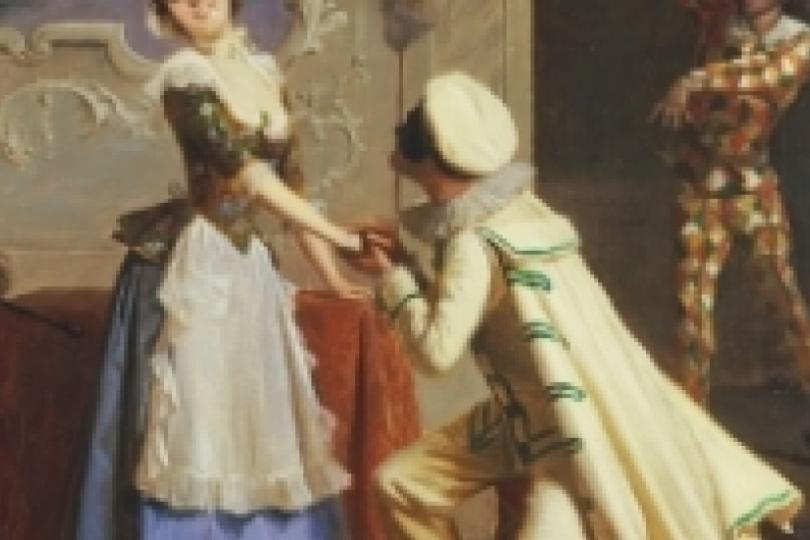The show must go on, so shut the hell up and get it done
Editorial

When Hamlet instructs his players to perform their production, he urges them to hold the mirror up to nature, “to show virtue her own feature, scorn her own image.”
And thus Sandor Sturbl, the Dutch actor, proposed to his girlfriend during a show in Glasgow in January. The twist? Sturbl was playing Peter Pan, his girlfriend Lilly-Jane Young was the actress playing Wendy. Mid-song, this fairy tale stud busted out of character, professed his real-life adoration for his co-star, and dropped down on one knee. You can’t help but squeal a little. The unconsummated romance between Peter Pan and Wendy Moira Angela Darling burns on par with Heathcliff and Cathy, or Captain Ahab and his white whale; to see the love play out in reality is undeniably satisfying.
It is also undeniably amateurish. Sturbl broke the fourth wall, which is unequivocally bad, and both professionals and audiences should be upset. Here's why:
Hijacking a show like this is not romantic or avant-garde. It’s narcissism, and a delusion of grandeur. The audience did not come to see the actor’s personal life drama commandeer the playwright’s words and the director’s blocking, nor did they pay to see the actors stop halfway through the production and switch to August: Osage County; the audience paid to see Peter Pan, and putting your throbbing passions above the wants and needs of the audience robs theatergoers of the experience they deserve. If you really feel the need to put your love on public display in front of hundreds of strangers, then save it for the curtain call, Romeo.
Stopping a show like Strubl did is not just a rip-off to patrons. It damages the theater production company. An actor is a valuable and highly visible piece to the puzzle, but is not the only piece that goes into the making of a show. Peter Pan, like all shows, was built on the sacrifices and labor of unseen/unsung heroes – designers assembling a costume at 2 a.m., prop masters gluing a broken lamp back together between scenes, stage managers running out to grab anti-diarrhea meds for an ill cast member five minutes before curtain (all experiences I have had here in Minneapolis). These labors are done for the sake of the show and to maintain the Grand Illusion. To discard this work because the lead actor happens to date the lead actress damages the trust and trivializes the dedication of the entire company. “The show must go on” is not a flexible guideline. It is the cardinal rule – in fact the only rule – of live theater.
I am no misanthrope. I wish Strubl and his partner many years of marital bliss, and I admire displays of passion as much as the next repressed twenty-something. But what about the passion that the audience was feeling for the performance at that moment when Strubl derailed the show? What about the passion of the writer, director and kapellmeister who had crafted a production that has now been destroyed by one rogue thespian? Are the urgent, burning desires of one actor above the wants and needs of an audience, of the company, of the crew? Any actor worth their salt will adamantly tell you no. When he stopped the show in Glasgow, Sandor Strubl was pointing Hamlet’s mirror the wrong way; instead of reflecting the real world and the (paying) audience, he saw only himself reflected in the spotlight.




